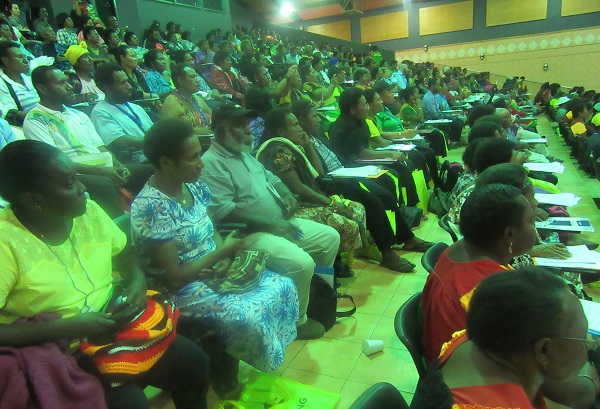
The Department for Community Development and Religion, under the Informal Economy Office aspires to grow the Informal Economy which caters for 75 percent of the country’s population.
This was relayed to women from the Highlands Region, who attended the PNG Regional Women’s Forum for the Highlands Region at the University of Goroka (UoG) from February 6 to 8.
Assistant Secretary for Informal Economy, Steven James in his presentation said that the government has been concentrating only on 15 percent of the country’s population.
“This is the Formal Economy, while the other 75 percent make up the Informal Economy where majority of the vendors or participants are women.”
James says any form of income earning activities that does not operate under the Government’s Laws is Informal Economy.
He adds that in terms of the Informal Economy Policy and Act, both have been reviewed after consultations with the responsible government agencies and partners, with the Policy to be ready in March this year, and the Act called The National Informal Sector Development and Control Act which is also ready to be submitted to Parliament this year.
He pointed out that the Informal economy is made up of the Urban and Rural while most of the mothers, youths, men or even the marginalized population have not been properly recognized by the Government to improve the resources that can be utilized by these groups to help with their income earning activities.
“And the main reason to have the Policy and Act endorsed and passed, is to help protect and improve the Informal Economy sector so that everyone benefits from it.”
He said despite the Policy been under review the Department through the Informal Economy branch managed to implement half of the Policy, there are two arms to the department’s action plan under the policy and that is Financial Inclusion and Public Goods and Services.
The presentation by James in representation for the Department and the government was appreciated by the women participants, as it indicated that the Government is willing to work together with the women in the country to strengthen their voices in various cross-cutting issues affecting them.
